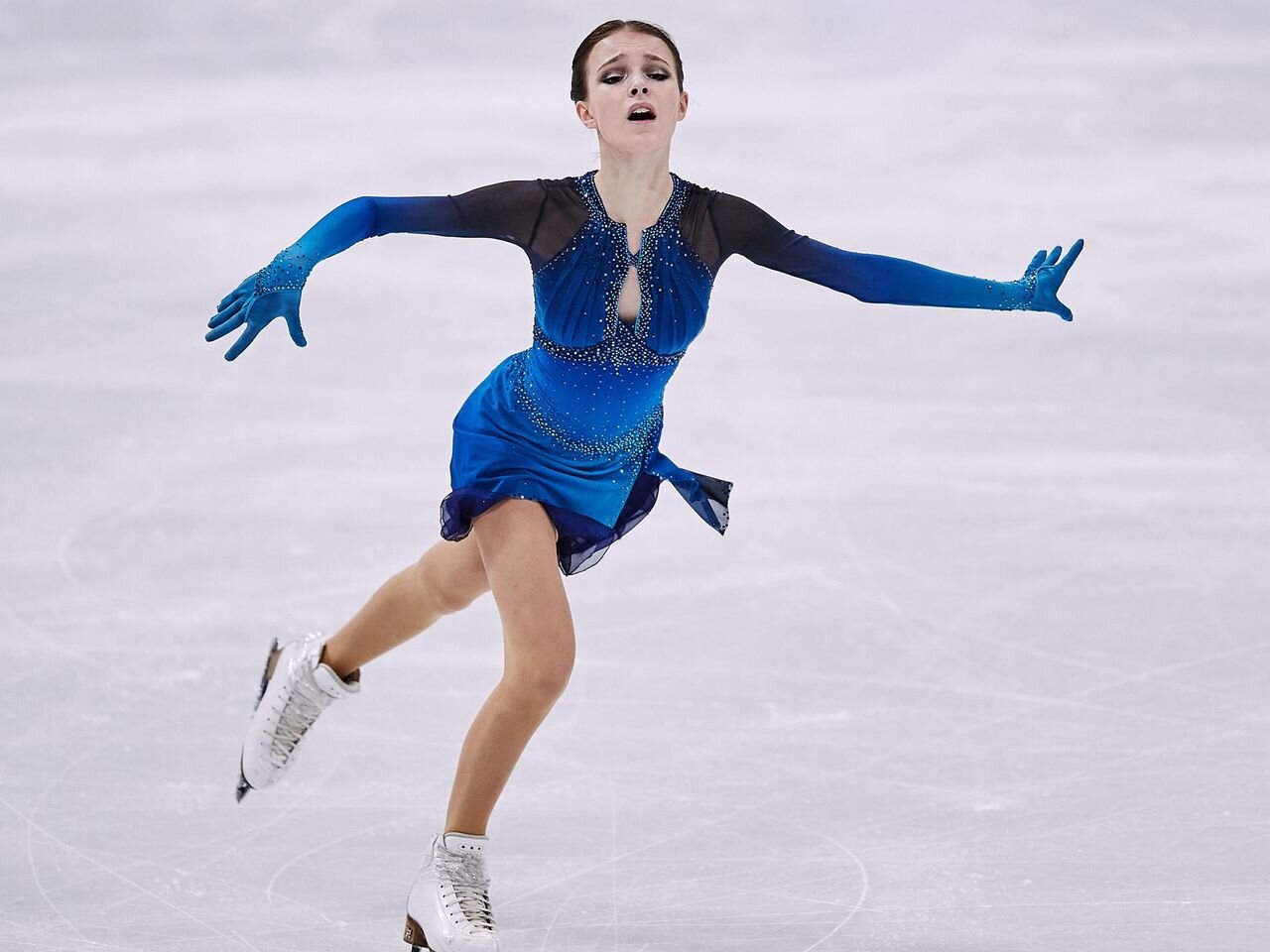2021 World Figure Skating Championships
Championships held in Stockholm amid COVID-19 concerns
The International Skating Union (ISU, the governing body of professional skating) held the 2021 World Figure Skating Championships in Stockholm, Sweden March 22–28. Amid extensive COVID-19 precautions, tense national rivalries, and questions regarding how the field will look for next year’s Beijing Olympics, the competition has served as a precursor to what the world of competitive sports might look like as the world slowly returns to a semblance of normalcy.
Russia’s Anna Shcherbakova won in ladies singles. Photo Courtesy of Eurosport.
The 2020–2021 figure skating season has been rather truncated. The first half of the season is usually dedicated to skaters gearing up for an international competition season, which involves lots of international travel for skaters to consult with choreographers, coaches, and trainers. Due to international travel restrictions in the first half of the year, qualifying events for the 2020–2021 season were held in skaters’ home countries to prevent the spread of the virus. The ISU would only host one international competition at the end of the season.
Each domestic competition lay bare its country’s respective COVID-19 policies, such as reopening up their economies and travel restrictions. Russia, for example, hosted multiple competitions for their skaters—many without mask mandates or testing guidelines for competitors, coaches, spectators, or staff. This resulted in various members of the Russian skating cohort contracting the virus throughout the year. 10 members of the 17-person Russian team sent to the World Championships had tested positive for COVID-19 at least once during the season (including the gold and silver winners of the women’s event).
Conversely, the Japanese National Championships were held in nearly empty, socially-distanced stadiums. While spectators were allowed inside the arena, they were instructed to not cheer or scream at the end of performances, which resulted in a rather awkward atmosphere for skaters. Finding a city to host the United States’ 2020 Skate America and U.S. Nationals was difficult. U.S. Figure Skating association had to strike a balance between finding a state that was politically conservative enough to host a sports event that could result in spreading the virus, but not conservative enough to not want that sporting event to be figure skating.
The viability of hosting a Worlds event had been up in the air since the cancellation of last year’s Worlds in March 2020. The Grand Prix Final for the 2020–2021 season had also been canceled due to the rise in cases in the winter. Regardless, all national skating federations eventually named and sent delegations to compete at the 2021 Worlds, given its importance. The World Championships is the competition that determines how many places each country gets at the Winter Olympics the following year.
Concerns about breaches in the COVID-19 safe bubble were not unfounded, as a positive COVID-19 test had been identified before the competition’s opening ceremony had even begun. Skaters and spectators alike voiced concerns about the efficacy of the COVID-19 precautionary measures, particularly when photos and videos of skaters and coaches eschewing mandatory quarantines and not wearing masks at airports and inside the competition’s indoor accommodations surfaced on social media. Yuzuru Hanyu and Nathan Chen, both favorites for the mens’ singles event, expressed their worry about potentially spreading COVID-19 when returning home. By the closing ceremony, a total of three positive cases were reported.
Russia’s Anna Shcherbakova, who turned 17 last Sunday, won her first World’s title in ladies singles. Elizaveta Tuktamysheva, who at 25 is considered a veteran of the sport (particularly in Russia, where it is common for skaters to retire before their twenties) placed second. With fellow Russian Alexandra Trusova placing third with a free skate of unprecedented technical difficulty (5 quadruple jumps), Russia swept the ladies’ podium, the first country to do so since the United States in 1991. They earned 3 spots for the Russian ladies to compete at the upcoming Beijing Olympics. For the ladies event, both Japan and the United States will be able to send three skaters as well.
Notably, the 25-year-old Elizabeta Tuktamysheva’s silver medal serves as a reminder that even in a sport characterized by teenage phenomena and young sensations, maturity and experience are indispensable. Since the Sochi and Pyeongchang Olympics, the dominant skaters in the ladies’ field have only gotten younger and younger. Alina Zagitova, the ladies’ gold medal winner at the 2018 Olympics, was 15 at the time of competition. Since the mid-2010s, most winners of major competitions tend to skew young, typically because the level of difficulty for the jumps and choreography demanded by the top levels of the sport is incredibly difficult to attain post-pubescence. For 2022, the Russian team’s Olympic hopefuls are both 14 years old and can execute programs of staggering technical difficulty.

